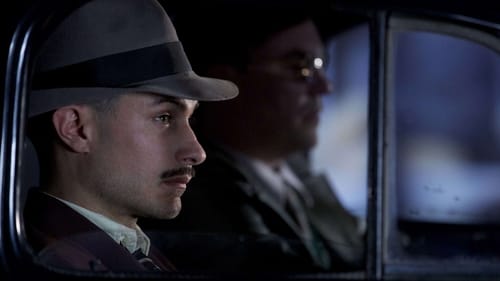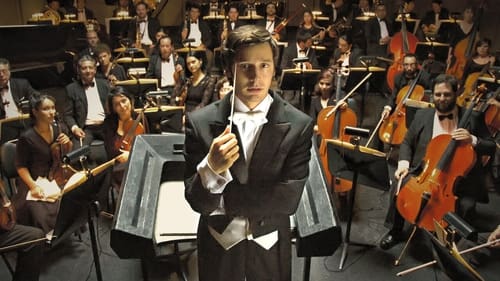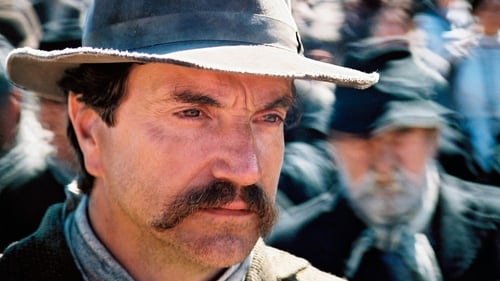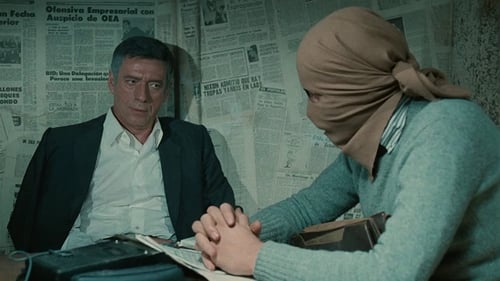Héctor Noguera
Nascimento : 1937-07-08, Santiago, Chile

Sergio Graf
A doctor and expert in ethics, Sergio Graf has to fight the Chilean health system as a patient when he gets Guillain-Barré syndrome. It is a journey toward physical deterioration, a loss of safety, and returning to something that he has until now taken for granted: his family.

Self
The life and experiences of six emblematic Chilean actors. One by one, they relate aspects of their trajectories, origin and dreams, reliving and analyzing not only their careers, but also happy and historical moments that marked their lives.

Werner
Werner, a stubborn and secretly romantic widower, would die in solitude if it weren’t for Teresa. Although the two elders already have their everyday rituals for dealing with solitude, and the vicissitudes of old age, lately Teresa seems aloof, unhappy. To cheer her up, the old man prepares a celebration in their house, but he has a problem: almost all of their friends are dead. While Werner struggles to get everything ready, and Teresa gets dolled up, someone else is helping them with “the guests”.

Senator Barros-Sanfuentes
When the World is immersed in total darkness by a mysterious phenomenon, an everyday student must decide between staying righteous or give himself to his own dark side.

No final da década de 1940, um inspetor (Gael García Bernal) persegue o poeta chileno Pablo Neruda (Luis Gnecco), ganhador do Prêmio Nobel, por ter se juntado ao Partido Comunista.

Self
Hector Noguera recalls his long trajectory that extends for more than fifty years through the poetic text of Calderón de la Barca "Life is a dream".

Miguel Echazarreta
A group of senior people will unite against the evil plan of a Spanish businessman who wants to get Chile out of Latin America to annex it to Europe.

Jacobo Kaplan
Jacobo Kaplan (Héctor Noguera) está cansado de sua velhice e de sua rotina. Ele tem a oportunidade de entrar em uma aventurar quando conhece um velho e solitário homem alemão. Jacobo suspeita que o homem é um nazista e pede ajuda a um policial, Wilson Contreras (Néstor Guzzini), para iniciar uma investigação.

Nicolás
A man who has recently lost his wife and forced to retire contemplates suicide. His friends take him on a trip to a senior resort, and invite his former sweetheart.

Iñaki Martiarena
A young Spanish girl develops an acute emotional crisis after her mother's death. When a letter written by the deceased mother surfaces, the grieving daughter departs to South America for answers.

Doctor Roth
Could a brilliant composer's music actually be killing his loved ones? Eliseo can't help but believe it when his younger sister dies tragically and then his pianist Georgina suddenly dies on the piano. Completely traumatized, Eliseo is taken to a mental hospital where he can find escape only through music.

Self
Gathered by a theater company, a small town in Chile called Villa Alegre, looks deep into its origins and myths to tell their own history through a play.

Luis Cousiño
Lota, 1897. In the depths of the largest coal mine in the world, a great rebellion is brewing inside a man's heart.

Luis Miguel Suerte
A bittersweet drama covering 30 years in the lives of group of friends united by their devotion to the theatre, 30 Ans begins in Paris in 1974, when Aurelian, his girlfriend Barbara, and childhood friend Antoine form a theatre. Taking the plight of Pinochet's oppressed Chile as its cause, the theatre attracts the involvement of Jeanne, a young actress who immediately sparks the attentions of both Aurelian and Antoine. When Chilean dissident actor Luis is brought to the theatre by Barbara's diplomat father, Jeanne falls in love with him, and the two carry out an affair that ends when a sudden development causes Jeanne to disappear. 8 years later, Aurelian has a new girlfriend and is directing a travelling troupe, and Antoine is a high-priced image consultant who gets his old friend a gig at Dunkirk. Aurelian, deeply immersed in a mid-life crisis, still loves Jeanne, continuing to carry a picture of the enigmatic actress in his wallet and writing about her in his diary.

Father
Teresa is a girl from Chilean aristocracy. She lives a double life, at day she dresses very elegant and fancy, while at night she assist to high society meetings at the Crillon Hotel in Santiago, where diplomats and wealthy people meet. However, her family is economically ruined after a bad sale of her father's mines and they have to live at Romero Street, where the working class lives.

An architect witness the brutal massacre by the police of an anti-government meeting and escapes to a remote archipelago.

Father Patricio
A Chilean teacher, Ramiro, is sentenced to internal exile in a southern town where tidal waves often appear. He falls for a woman, Maite, whose father asks him to take her away. Although he gets his freedom he doesn't leave and when the water rises, Maite and her father die, and Ramiro flees to the hills.

In the late 1980s, a politically neutral photographer in Pinochet's Chile is still struggling to come to terms with the "disappearance" of his activist brother in the Villa Grimaldi torture centre back in 1975.

Emilio Farías
The journey of a retired music teacher who witnesses the detention of a former student by the security agencies of dictatorship. This strong experience leads him to give up on a dream trip to Europe and to begin an intense search for the student's relatives and make them know about what has happened to him.

Exiled Chilean director Patricio Guzmán filmed in Cuba and in Venezuela to create this controversial statement on the creation and survival of Latin American culture from the late-15th century to the present. For some viewers, the film will be superficially symbolic and rhetorical, for others, it will be a strong and personal vision of several centuries of history.

Paolo San Fuentes
A middle-class public employee becomes obsessed with the investment alternatives offered by the neo-liberal economic model that Chile has implemented in the late 1970s. Years later he shall face the consequences.of his past decisions.

Carlucho

Tupamaro Leader
No Uruguai, no início dos anos 1970, um funcionário da Agência para o Desenvolvimento Internacional (um grupo usado como uma frente para a formação policial estrangeira ) é seqüestrado por um grupo de guerrilha urbana. Usando seu interrogatório como um pano de fundo, o filme explora as consequências frequentemente brutal da luta entre o governo do Uruguai e da guerrilha esquerdista Tupamaro.

A man squanders all of his wife's fortune in gambling and drinking. Now in financial crisis, the woman tries to keep their home afloat, while he plays, gets drunk and lives off his friends charity and good will.

Chaplain
Baseado em fatos reais, o filme recria um dos grandes crimes ocorridos no Chile na década de 60, quando um camponês chamado José del Carmen Valenzuela Torres foi preso pelo assassinato de uma camponesa e seus cinco filhos na localidade de Nahueltoro. Considerado um dos melhores filmes chilenos de todos os tempos.

Narrator
This documentary shows the inhuman conditions on which the patients of Iquique's Psychiatric Hospital live.

Narrator
Through images showing the precarious conditions in which the poorest families in the country live, and the testimonies of the mothers themselves, a denunciation of child malnutrition in Chile is made. It also shows a hospital ward and babies in a state of extreme malnutrition, and images of a funeral, in which the coffin is evidently that of a child. The narration provides facts and figures that reinforce the magnitude of the problem.

A family on the brink of bankruptcy decides to do dirty jobs undercover by the government to overcome their condition.

























